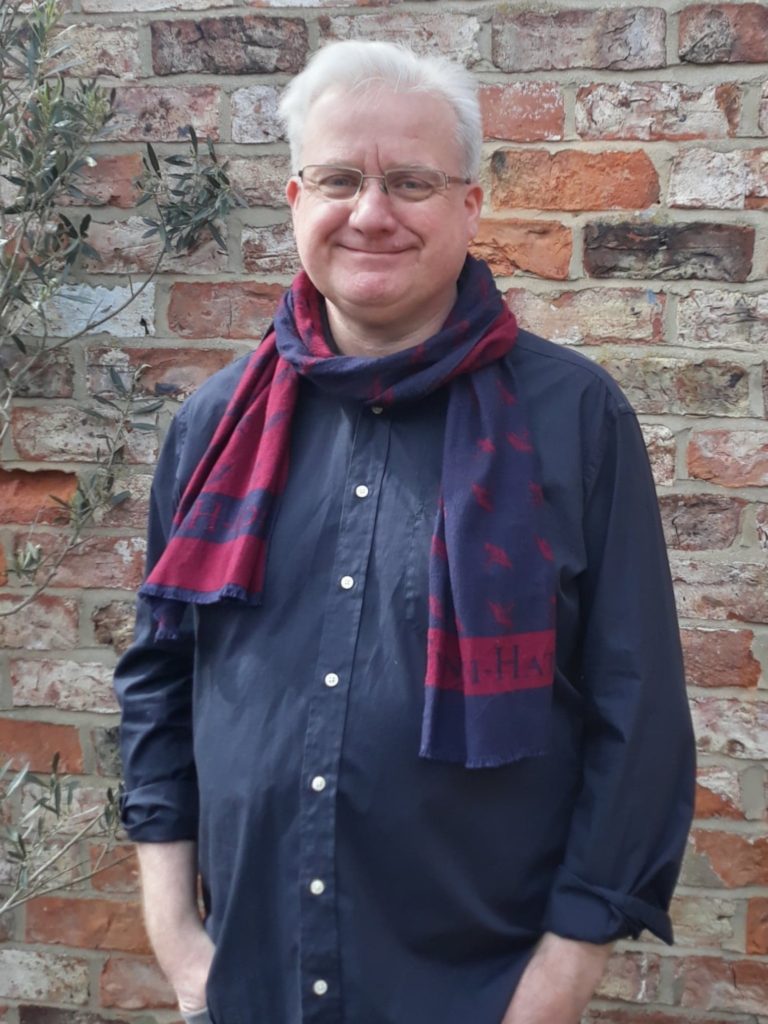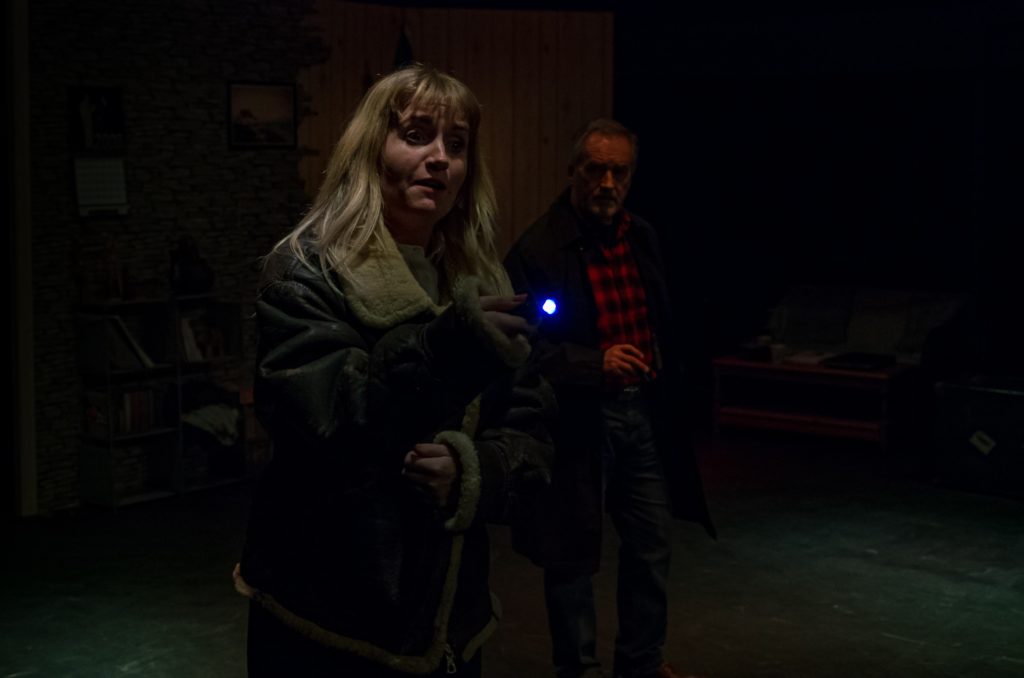
AFTER eight novels, with his ninth on the way, Tim Murgatroyd has written his debut play, Sea Stones, an emotional, suspenseful night of the soul when four people are brought together in a lonely house by the sea.
Two fathers. Two daughters. Each confronted with the consequences of the past as a high tide is turning and tests to their relationships are escalating. Tests that might cost them not only their dearest hopes and loves, but their very lives. “The truth can set you free. Or drown you,” says York writer Tim.
Sea Stones will be premiered from tonight (14/11/2023) at Theatre@41, Monkgate, by Lumar Productions, the York company run by film and stage director Martin Handsley, with a cast of Mick Liversidge as Phil Goodman, Raqhael Harte as Sophie Goodman, Ian Giles as Ratko Ilich and Ukrainian-born York Opera mezzo-soprano Polina Bielova as Jana Ilich.
Introducing the storyline, Tim says: “The play opens in 2000 in a small town in the former Yugoslavia celebrating a new millennium. It is ten years since bloody civil war tore the Communist federation apart, unleashing horrific ethnic conflict.
“But some legacies are not easily forgotten, especially when the victims find no justice and the so-called victors are unpunished, even rewarded.”
Roll forward to 2008: “All around the world, greed-fuelled banking systems are collapsing, creating new victims among the ‘little people’ who trusted in their institutions and leaders. New winners and losers, all over the world.
“But some people never accept losing. It’s not just the corrupt bankers who seek to claw back what they can. The stage is set in an isolated cottage by the sea for further crimes against the best sides of human nature: love, reconciliation and compassion. Or perhaps, this time, for redemption.”
Martin was captivated immediately by Tim’s compelling story on two grounds. “Sea Stones delves into the intricate tensions and dynamics between fathers and their daughters, a theme that resonated deeply with me as I’m the proud father of three girls,” he says.
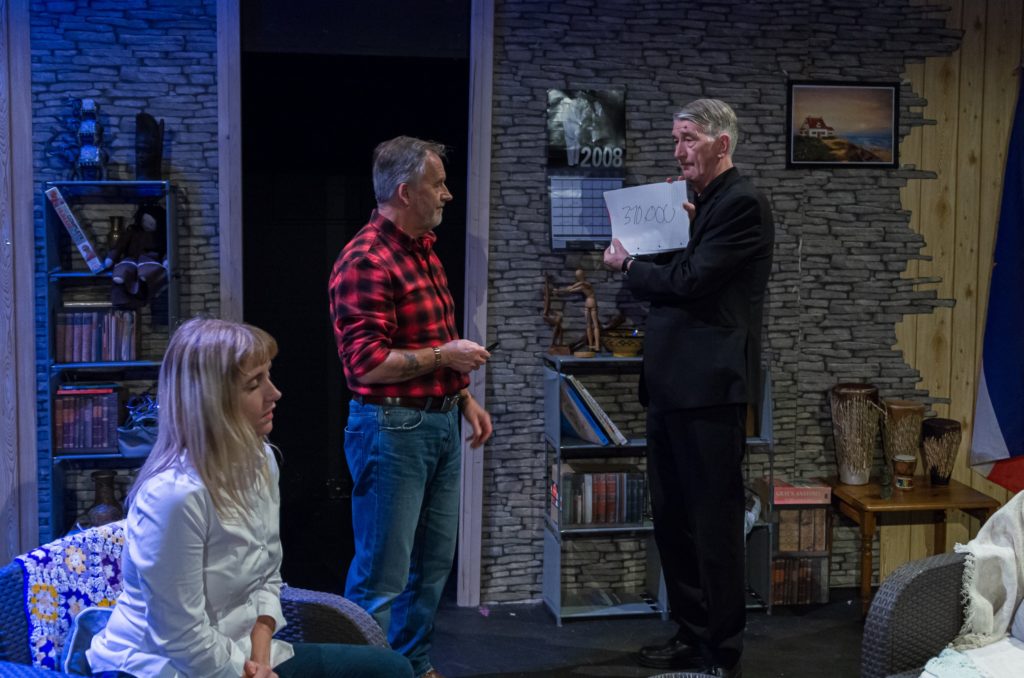
“This is also a story how history never quite dies. My personal experience as an aid worker during the Yugoslav Civil War [travelling from Leeds in 1992 to bring refugees from Bosnia to the UK] provided me with a profound understanding of the challenging circumstances the characters in the play find themselves in.
“Even in 2023, the world continues to grapple with the same issues that the play addresses. The ongoing conflict in Ukraine serves as a stark reminder that war and its aftermath still haunt us. That’s why we’re so excited to bring Sea Stones to life on stage, setting free the power of theatre to illuminate and provoke thought about the enduring challenges our world faces.”
Tim felt “more poacher than gamekeeper” when writing Sea Stones. “My career as a published writer has been exclusively as a novelist,” he says. “Eight in print to date, two of them translated into Chinese.
“I have written stories about Ancient China, a dystopian Yorkshire, even silent cinema musicians in York, but I had never written a play. So it came as a surprise when I found myself scribbling down stage directions, then dialogue, that would emerge as Sea Stones.
“It began with a man in a lonely cottage by a pebbly beach startled by the arrival of a car where no-one comes. Dark memories of the Yugoslav Civil War and anger at injustices in the world crept into his home with the sound of waves grinding the shingle.
“Then came a long-lost daughter corrupted by money and greed, dragging far worse in her wake, and the stage was set for conflict: love, morality, and bare survival. As the character Phil Goodman says: ‘Sometimes we touch, connect, brought together by the tide. Sometimes we grind each other into sand like millstones. Sometimes we just break apart’.”
First play for Tim, first stage directing challenge for Martin: “I’ve directed film before, which is completely different,” he says. “I never thought I’d enjoy theatre because it’s so ephemeral, whereas you put everything into getting the image right, you film it and it’s there forever.
“However, what I’ve learned with this production is that theatre’s ephemeral nature is what it’s about, being in the now, what’s going on live in front of you. I’ve enjoyed it so much that I’ve become a volunteer at Theatre@41, doing tech work, working behind the bar. I just love it.
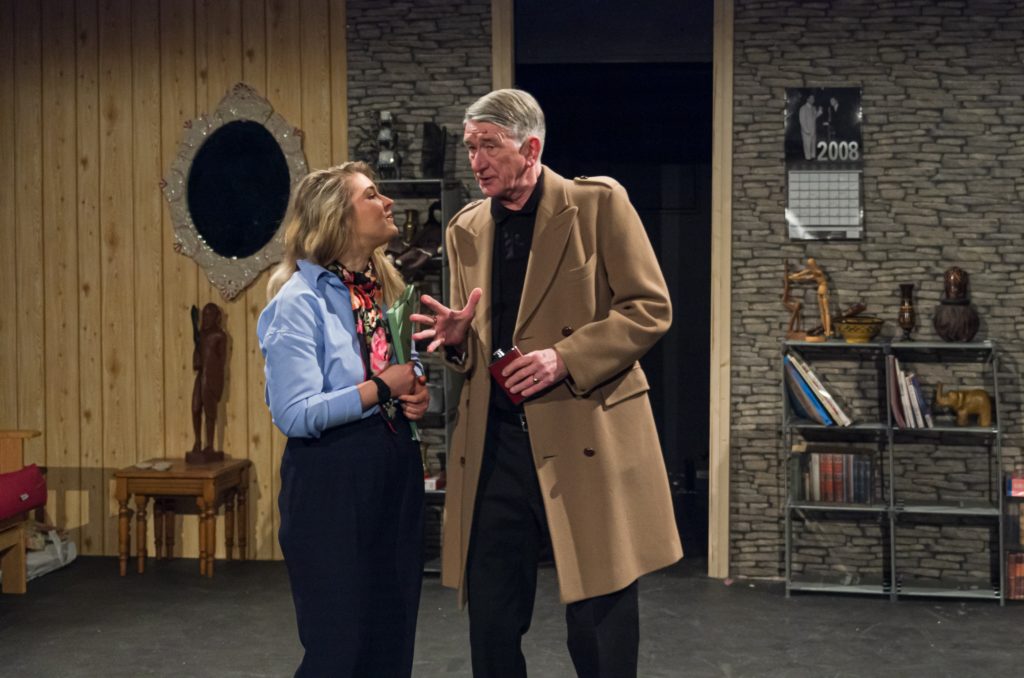
“The fact that Sea Stones is a great play and we’ve got great actors helps as well! I’ve been with this play for over a year, and still the hairs stand up on the back of my neck when I hear certain lines being said.”
Whether as a novelist, or now as a playwright, Tim says: “At the heart of all this writing is storytelling. If you think about how humans understand the world, it’s through stories, with bigger narratives in plays and novels.
“With novels, you can use descriptions, whereas plays rely on what’s being stated or implied by the characters in speech, so the real challenge was to make sure the play’s dialogue was naturalistic, but not too naturalistic because I wanted to have deeper philosophical and emotional layers to the characters’ experiences.”
Sea Stones has taken three years to evolve. “That’s when Tim first contacted me and sent me a copy of the original script,” recalls Martin. “I read it but just didn’t think I’d be the one to stage it. But then Covid came along, and afterwards I just wanted to do something different after the film.
“Tim contacted me again, we got some actors together, did some readthroughs and made sure that the heart of the story would remain, but we would need to lose some of the dialogue to make it more pacy.”
Further challenges were to secure a theatre for the production and to find the right cast. Tick and tick, albeit with changes in one role. “We’ve ended up with the highly experienced Ian Giles as our fourth iteration of Ratko Ilich,” says Martin. “He’s bringing a level of confidence to the role that we were struggling with before, and lots of humour too, and we have an ensemble that gets on really well.”
Ian has made such an impact that Tim is writing a role expressly for him in his next play. Meanwhile, Tim and Martin have found a way to integrate Polina Bielova’s operatic singing in Sea Stones. “I can guarantee people will have tears in their eyes,” says Tim.
Actress and yoga teacher Raqhael Harte brings 15 years of acting and performance studies, coupled with a few years of York productions, to her role as troubled daughter Sophie. “She’s a Scottish actress and when she auditioned, I just loved her accent and knew it work really well in the play,” says Martin. “Her character is jarring, and her voice can be quite jarring too, so she’s the whole package.”
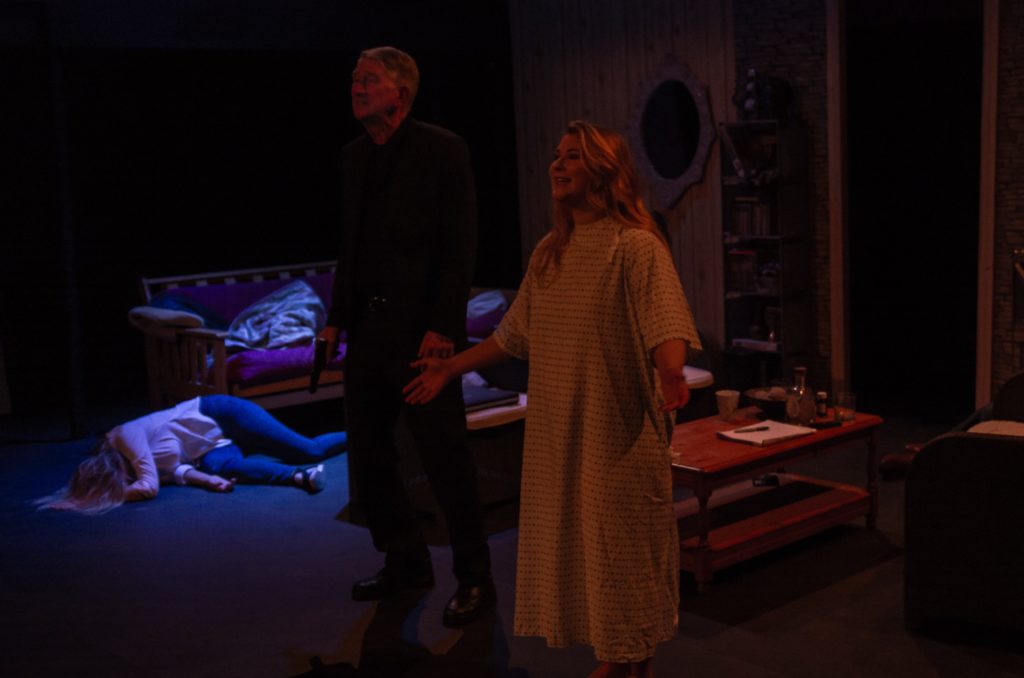
Summing up his play, Tim says: “Essentially it’s about two parallel father-daughter relationships, with each one casting light on the other, and from that they learn lessons, some hard, some redemptive, but all of them life-changing.
“In many ways, the play is designed to work on two levels: the parent/child relationships and the wider content of the world, referring to the Yugolsav war and to the 2008 banking crisis, with questions about corruption and human behaviour in a difficult, flawed world.
“That makes it incredibly relevant to today, where there’s corruption that’s pretty much not even hidden now, and all the violence and war that we see on our TV screens every night. We ask, ‘are we powerless? What can a good parent do?’.”
Important to Tim too was the need to make the characters believable. “Looking at human nature, these characters can be contradictory in their beliefs and behaviour because people are contradictory, and you have to get that complexity across – which can be challenging for everyone involved, not only the writer.
“What I’m hoping the audience will take from the play is not only an emotional journey but also a lot of tension because the potential for violence is always lurking in what I’ve written, so in that sense it’s not just about their relationships but also about survival.”
As indicated by the title, the sea is a significant character in the play too. “A lot of the meaning of the play comes from the dialogue, but plenty will come from metaphors too, where you’re trying to connect the audience with places and feelings they have experienced. The sea is perhaps the best example of that,” says Tim. “It represents movement and change, and characters being swept along by the tide of history.”
From the moment of arrival in the John Cooper Studio, audiences will be surrounded by the rhythmic roll of crashing waves with the high tide on its way. “I love the sound of the sea, and we use it as background in pretty much all the scenes set at the cottage,” says Martin.
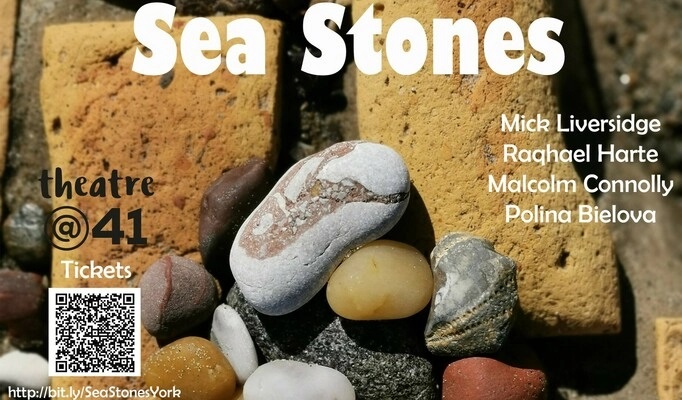
Tim adds: “It’s almost like a musical soundtrack in this play. There’s a theory that we evolved from aquatic apes and that’s why we have this immediate bond with the sea.”
Sea Stones is “as uncomfortable as possible” for the audience, or “intimate”, as Tim prefers to describe the viewing experience. “By creating four contrasting characters, I can show the different facets of humanity, so we see good in the play, sometimes incredibly heroic good deeds, but also the bad in people, the potential for corruption, which creates dramatic tension,” Tim concludes.
Lumar Productions present Sea Stones, Theatre@41, Monkgate, York, tonight (14/11/2023) to Saturday, 7.30pm plus 2.30pm Saturday matinee. Box office: tickets.41monkgate.co.uk. Running time: 100 minutes plus interval.
Back story: Lumar Productions
SMALL independent film, video and theatre production company dedicated to creating innovative content and storytelling, delivered with energy and passion. Its latest film feature, Wiccan, is scheduled for release in 2024.
The company is run by Martin Handsley, an IT professional, who reinvented himself after a life-altering event as an actor, writer, producer and director.
Writer’s profile: Tim Murgatroyd
READ English at Hertford College, Oxford University, and now lives with his family in York. Internationally acclaimed author of several novels of historical fiction, a dystopian series, whose latest novel, October 2022’s The Electric, is set in the glamorous world of silent cinema in York in 1919.
Former weekly columnist for The Press, York.
Sea Stones is his first play. His next novel, Dust Of The Earth, will be published next year.
For a preview of Sea Stones, visit: https://youtu.be/pviM6iKB0dw





